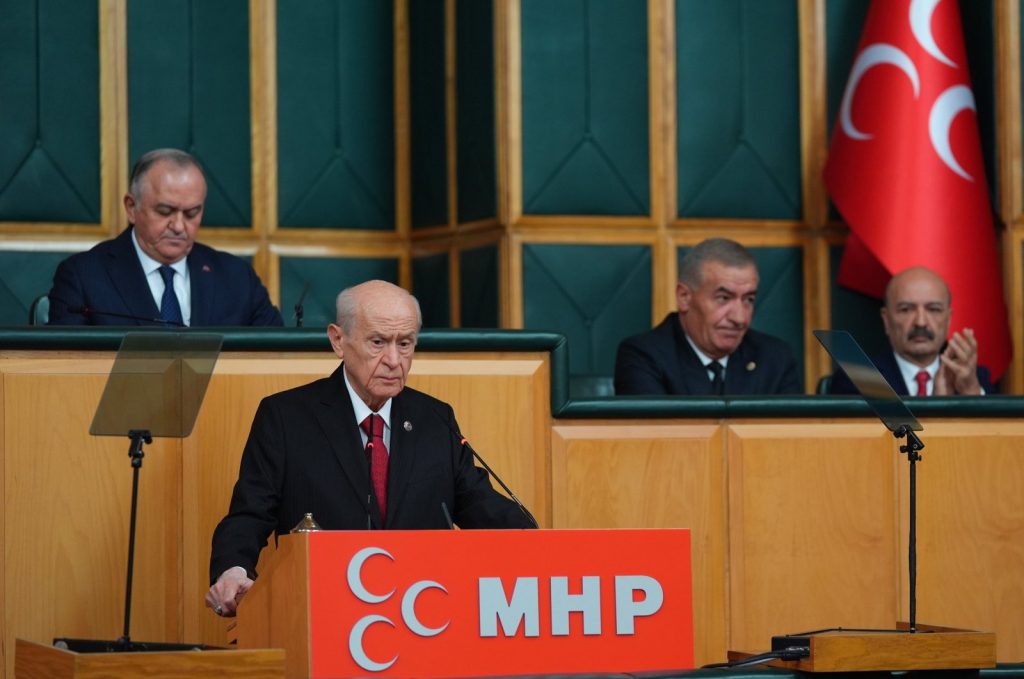For the past two weeks, the Turkish public has been discussing the groundbreaking speech of Devlet Bahçeli, leader of the Nationalist Movement Party (MHP), which is allied with the ruling Justice and Development Party (AK Party).
In Parliament, Bahçeli said the following about Abdullah Öcalan, the imprisoned leader of the PKK terrorist organization responsible for the deaths of 50,000 people:
“I appeal to those who say ‘nothing will happen if the terrorist head is not involved.’ If the isolation of the terrorist head is lifted, let him come and speak at the Democracy Party (DEM Party) group meeting in Parliament. Let him shout that terrorism is completely over and the organization is disbanded. If he demonstrates this resilience and determination, let the legal regulation on the exercise of the right to hope be made and the way for him to benefit from it be opened wide-open.”
It is natural that Bahçeli’s statement resonated widely. Because he and the party he leads are the strongest representatives of the mainstream nationalist tradition in the country. His statement is also unusual for the MHP tradition, which until now has considered methods other than armed struggle against the PKK as “treason.” Bahçeli had strongly opposed the “Reconciliation Process” between 2013 and 2015, which was designed to get the PKK to lay down its arms, but which did not yield any results.
So, what was the attitude of the imprisoned Öcalan, the PKK’s outside leaders and the DEM Party, the legal wing of the organization, toward Bahçeli’s bold statement emphasizing civil and democratic politics?
The day after the MHP’s call, there was a terrorist attack on Turkish Aerospace Industries (TAI), one of the most important institutions of the Turkish defense industry. Five civilians, including engineers, lost their lives and more than 20 people were injured. The PKK claimed responsibility for the terrorist act.
This was a clear message that PKK leaders, who run the organization from caves in northern Syria and Iraq, are against any political solution.
The DEM Party, on the other hand, has adopted an ambivalent stance, caught between Öcalan, who has expressed a positive view of the process, and the PKK’s de facto leaders. Even though there were some in the party who were overwhelmed by PKK pressure, they did not respond to Bahçeli’s outstretched hand out of fear. They clenched their hands into fists.
In this atmosphere, the judiciary’s suspension of three DEM Party mayors due to their convictions for membership in a terrorist organization gives an idea about the nature of a possible process.
Speaking to his party’s group in Parliament last Tuesday, Bahçeli repeated his remarks that drew reaction from nationalist circles, saying, “I stand behind you. He emphasized that doors that seemed to be closed were still open.”
Apparently, the state mind again points the DEM Party and its base to the “last exit before the bridge.” “We can discuss all kinds of democratic demands in Parliament, but abandon the PKK, which is on the terrorist organization list of many states, including the U.S., and its perspective of armed struggle.”
Let us turn to the question of what will happen if this initiative is rejected by the PKK/DEM, as it was in the first Reconciliation Process.
What will happen is clear. The war-torn Turkish state will sternly demonstrate that it will no longer tolerate the PKK/DEM relationship, which threatens its national security and is unacceptable in any democratic state of law.


